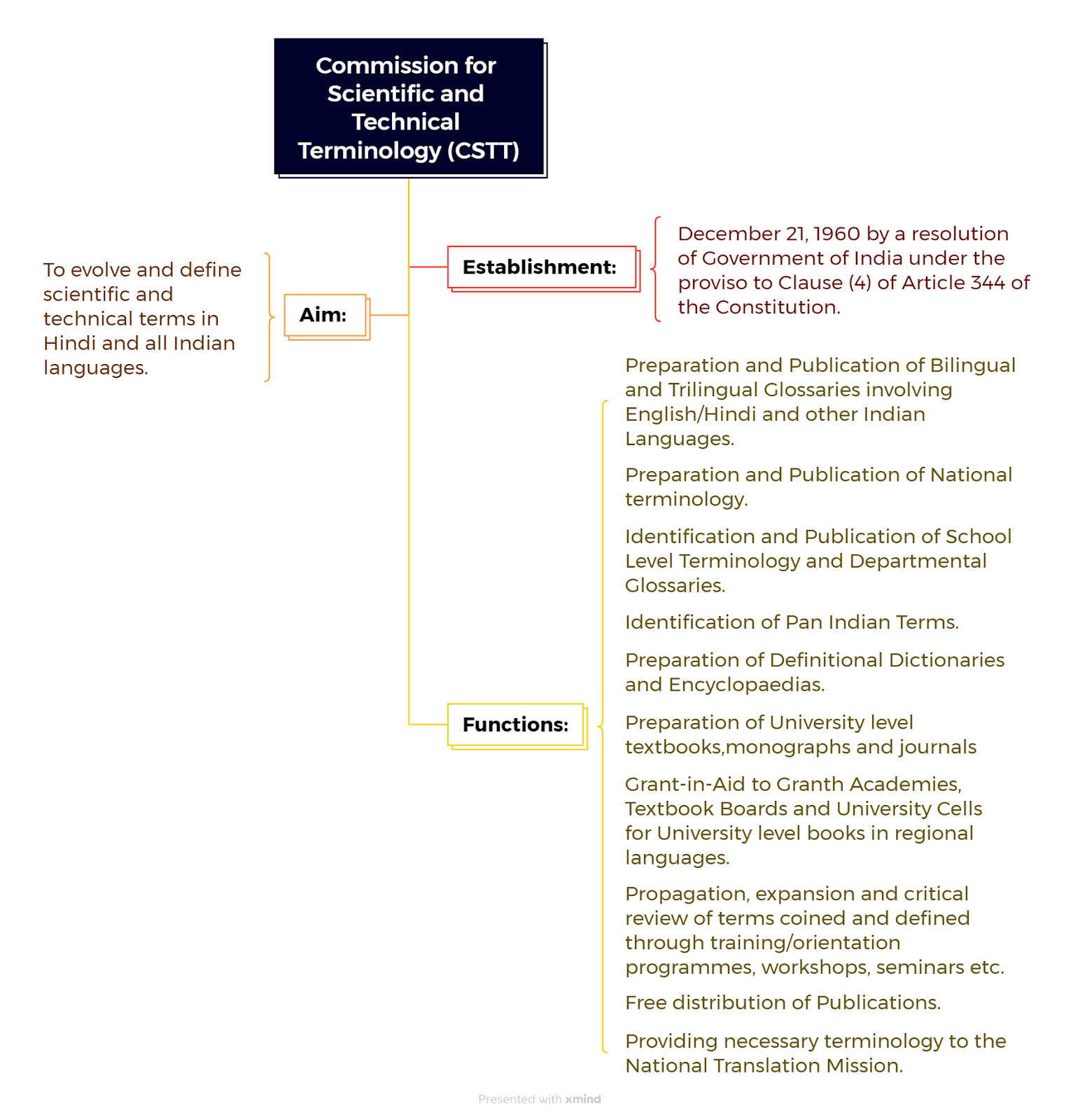Art and Culture
Pahadi Korwa tribal community - The Hindu
Context
As many as 54 settlements of Pahadi Korwa community, a particularly vulnerable tribal group (PVTG), will be connected through roads in north Chhattisgarh under the Prime Minister JANMAN scheme.
Pahadi Korwa Tribe
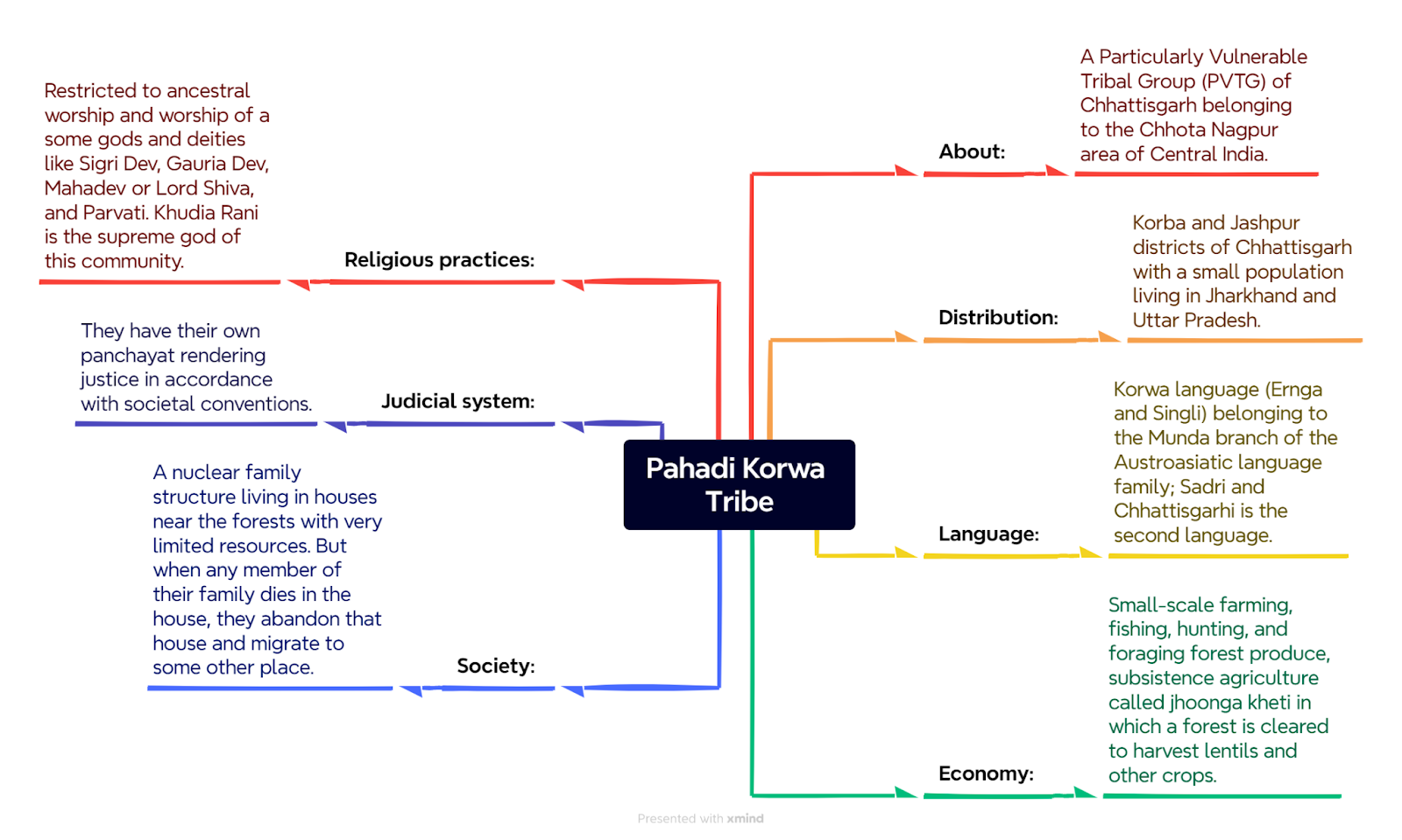
Pradhan Mantri Janjati Adivasi Nyaya Maha Abhiyan (PM JANMAN)
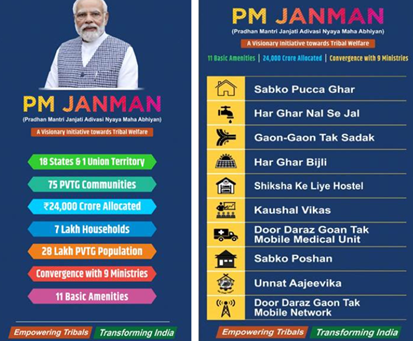
Redevelopment threatens heritage value of 125-year-old Coonoor rail station - The Hindu
Context
- For over 125 years, the Coonoor railway station has remained frozen in time. A relic of the Nilgiris’ complicated colonial history, the station, which is part of the UNESCO World Heritage Site, that is the Nilgiri Mountain Railway (NMR) line, is being completely transformed, with renovations to the building being criticised by heritage train and history enthusiasts in the district.
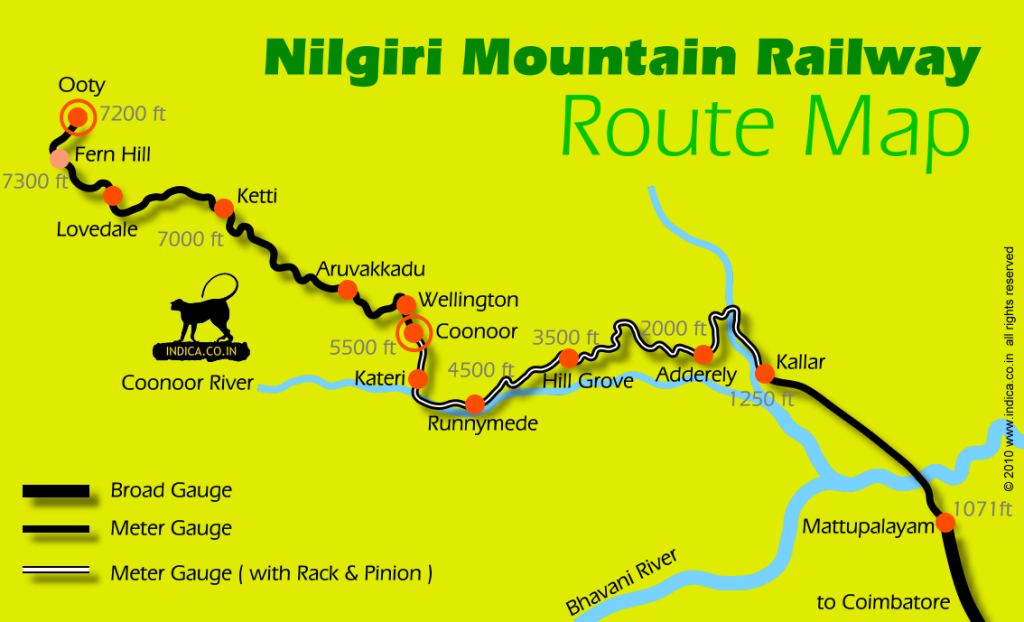
Nilgiri Mountain Railway
Geography
East Timor/ Timor Leste (Asia's Youngest Democracy) - The Hindu
- Initial control: The territory was colonised by Portugal in the 18th century and remained under its control until 1975. When the Portuguese withdrew, Indonesia invaded and annexed East Timor as its 27th province.
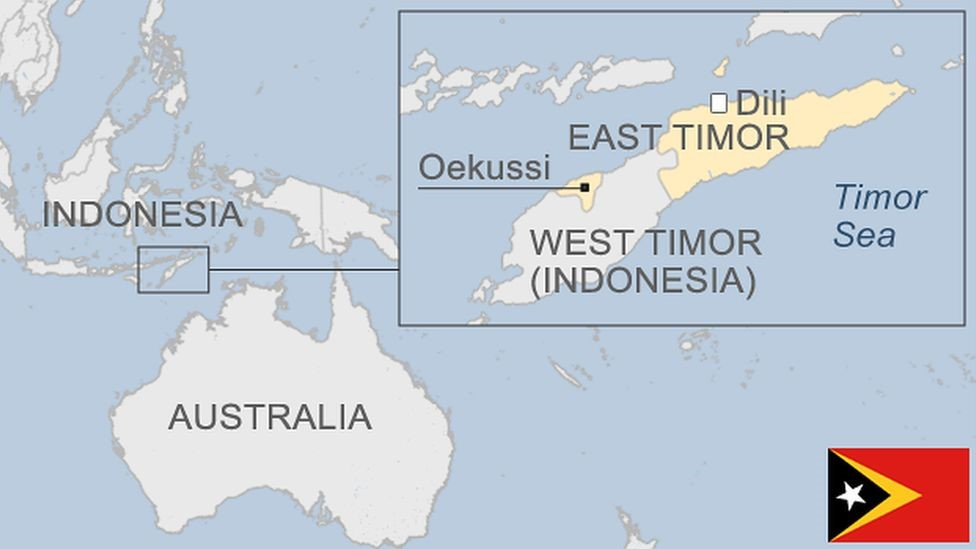
- Independence: In a 1999 UN-supervised referendum, the East Timorese voted for independence, but that unleashed even more violence until peace-keeping forces were allowed to enter.
- UN recognition: The country was officially recognised by the UN in 2002.
- Boundaries:
- Southeast: Timor Sea
- North: Wetar Strait
- Northwest: Ombai Strait
- Southwest: Western Timor (part of the Indonesian province of East Nusa Tenggara)
- East Timor: It comprises the eastern half of Timor island, the western half of which is part of Indonesia.
- Area: A 15,000 square km land area – slightly smaller than Israel
- Economy: Mainly dependent on revenues from its offshore oil and gas reserves which account for 90% of its GDP.
Paraguay river registers its lowest water level - Indian Express
Context
- A powerful drought in the Amazon rainforest led on Monday to the lowest water levels on the Paraguay River in more than a century.
Paraguay River
- About: The fifth largest river in South America serving as a natural boundary, particularly between Paraguay and Brazil and between Paraguay and Argentina.
- Length: ~ 1,584 miles (2,549 kilometers)
- Headwaters: In the Brazilian state of Mato Grosso (within the Brazilian Highlands) to its confluence with the Paraná River, just north of Corrientes, Argentina.
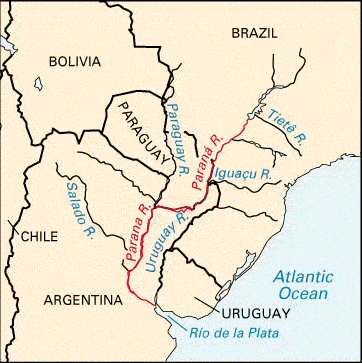
- Major countries: Brazil, Bolivia, Paraguay and Argentina
- Significance:
- Location of Pantanal: World’s largest tropical wetland is contained within the Upper Paraguay River Basin.
- Paraguay + Paraná + Uruguay Rivers: They collectively form the second most important drainage system in the world, which covers approximately 1.6 million square miles.
- Mouth: These empty into the Rio de la Plata estuary (Atlantic Ocean) at a rate of 2.8 million cubic feet of water per second, an outflow second only to that of the Amazon River.
Society
How Swachh Bharat Mission advanced progress on safety and dignity, health and economy - Indian Express
Context
The recent release of the scientific report in the Nature journal on the Swachh Bharat Mission’s (SBM) impact on the reduction in infant and child mortality broadly coincides with the 10-year anniversary of the programme.
Swachh Bharat Mission (SBM)
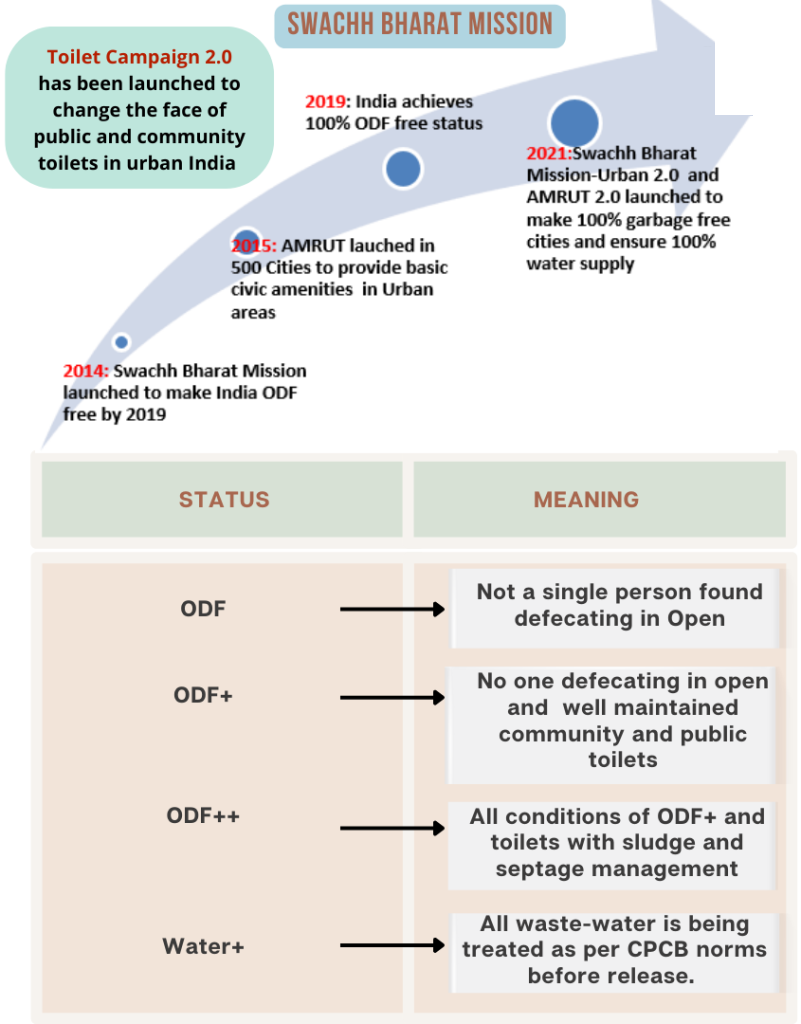
- Launch: October 2, 2014
- Aim: To fulfil the vision of a cleaner India by October 2, 2019.
- Target: To eliminate open defecation, eradicate manual scavenging, and promote scientific solid waste management.
- Significance:
- Transformation of a Hidden Problem into a National Priority: Sanitation was historically a taboo topic in India. SBM addressed open defecation publicly, making it a matter of public urgency.
- A Vision to Change the Mindset Along with Infrastructure: SBM involved constructing 100 million toilets and creating a social movement.
Impact of Swachh Bharat Mission
|
Health Impact
|
- Reducing Child and Infant Mortality Rate: Saved 60,000 to 70,000 children under five annually by reducing waterborne diseases like diarrhoea.
- Reduction in Infectious Diseases: SBM's widespread toilet construction significantly reduced diseases like diarrhoea, cholera, and typhoid, improving child survival.
- Reduction in Overall Disease Burden: Eliminating open defecation fostered a culture of cleanliness, reducing infectious diseases across the population.
|
|
Economic Impact
|
- Financial Savings for Households: As per UNICEF, ODF status saves each household approximately Rs 50,000 annually due to reduced medical expenses, increased productivity, and time savings.
|
|
Social Impact
|
- Enhancing Dignity and Security for Women: Lack of toilets previously forced women to defecate in the open, risking harassment and assault.
|
Mahatma Gandhi International Sanitation Convention (October 2018)
Conclusion
The Swachh Bharat Mission has achieved significant success in its first decade having positive impacts on public health, economic savings, and social well-being. Success highlights the power of bold leadership, community participation, and sustained effort. SBM offers valuable lessons for other countries aiming for universal access to sanitation and clean water.
Polity
National Human Rights Commission (NHRC) - The Hindu
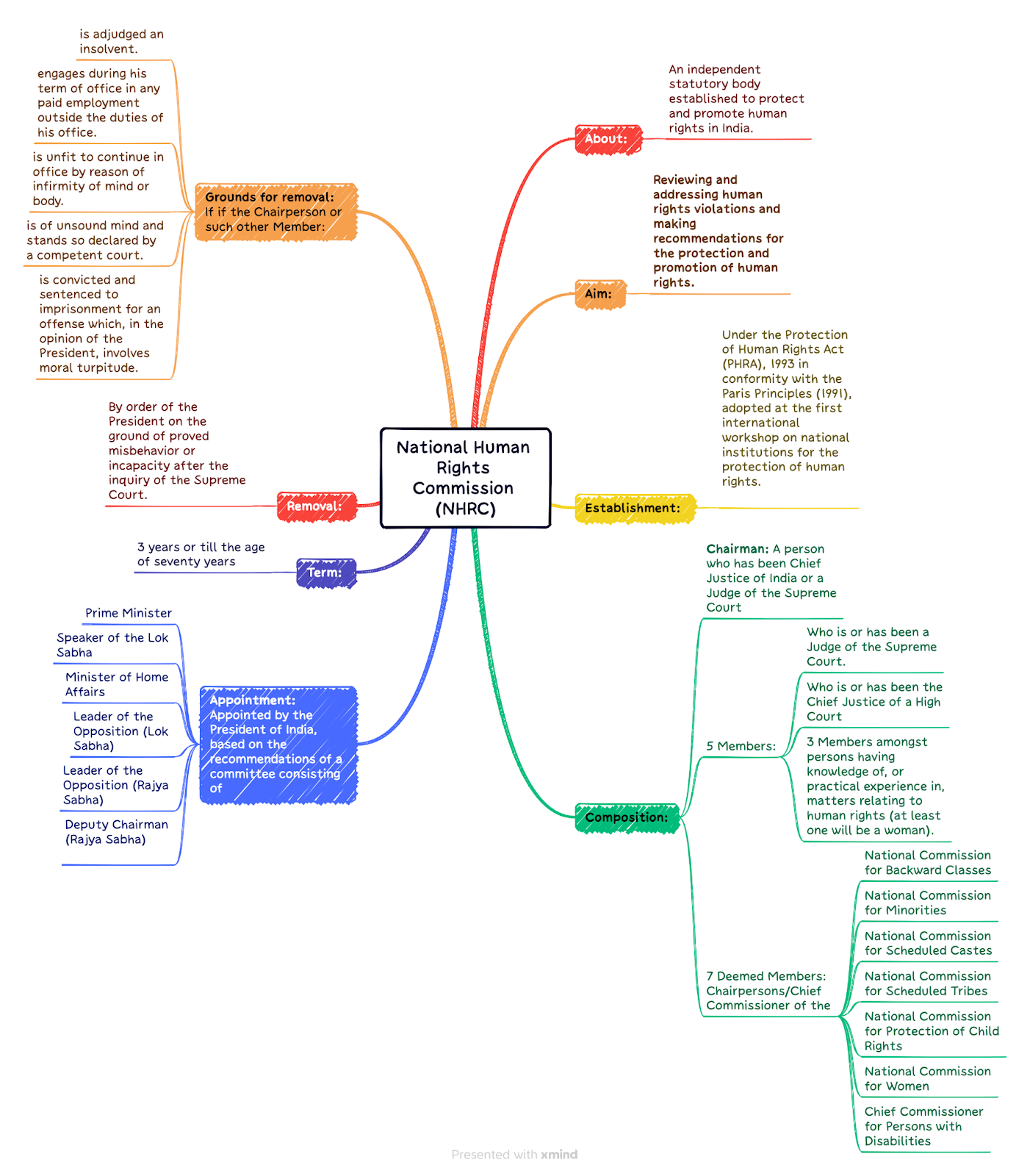
World Affairs
Watchdog likely to release report on India’s mutual evaluation next week/ FATF to meet private sector stakeholders in April 2025 - The Hindu
Context
The Financial Action Task Force (FATF) is expected to release its report on India’s mutual evaluation, which was adopted at its June 2024 plenary in Singapore recently. The FAT) is also likely to meet Indian private sector stakeholders in April 2025 as part of ongoing deliberations on proposed changes to its recommendations, which also seek greater transparency in cross-border transactions.
Financial Action Task Force (FATF)
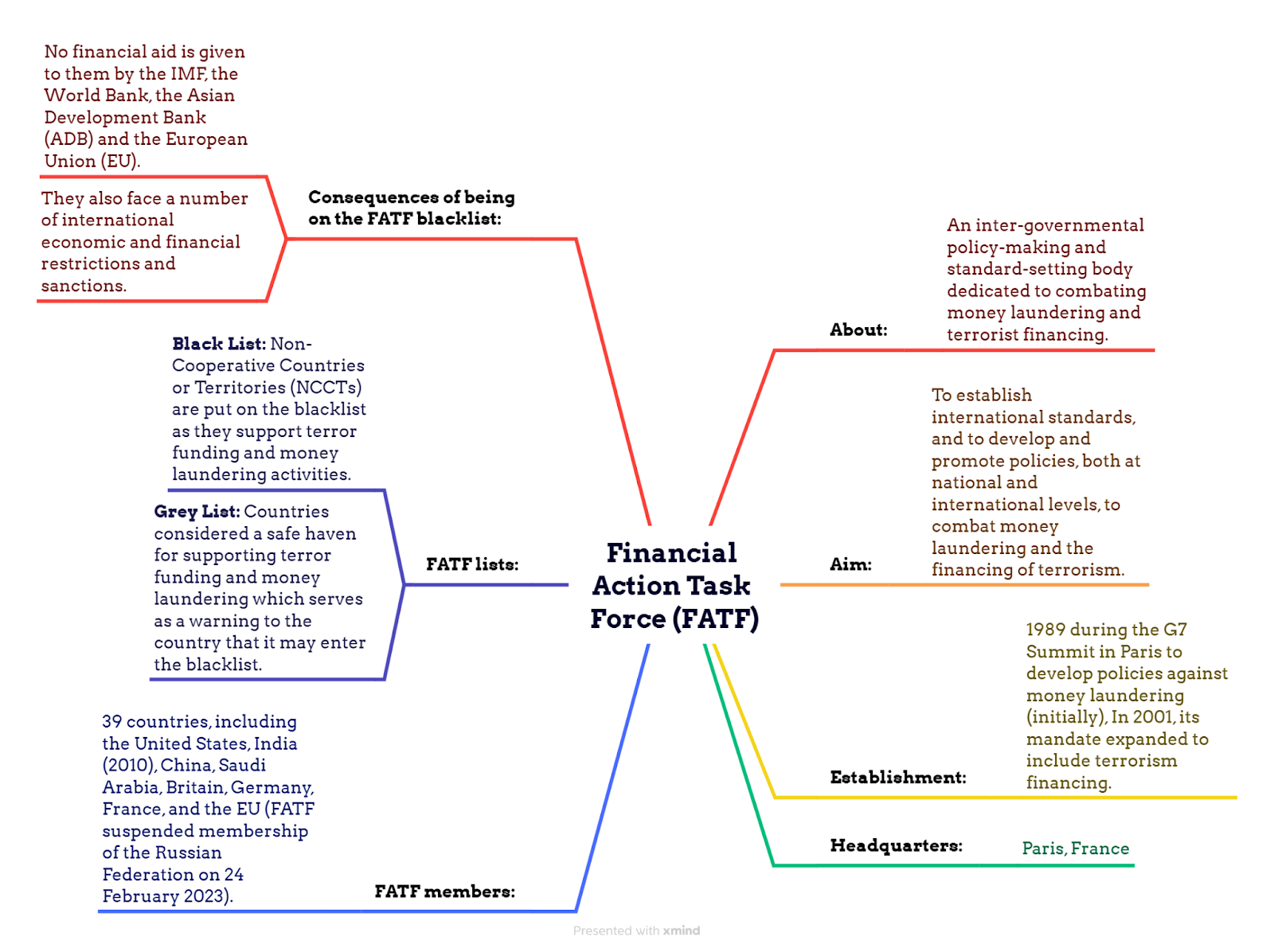
‘India has a four-point principle to end the Russia-Ukraine conflict’ - The Hindu
Context
India has a four-point principle towards the resolution of the Russia-Ukraine conflict, said Indian External Affairs Minister recently.
India’s four point principles
- This should be a time of peace;
- There would be no solutions to the war on the battlefield;
- Russia must be at the table for any successful peace process;
- India is “concerned and engaged” in trying to find a way to resolve the conflict
Environment
National Board for Wildlife (NBWL) - Indian Express
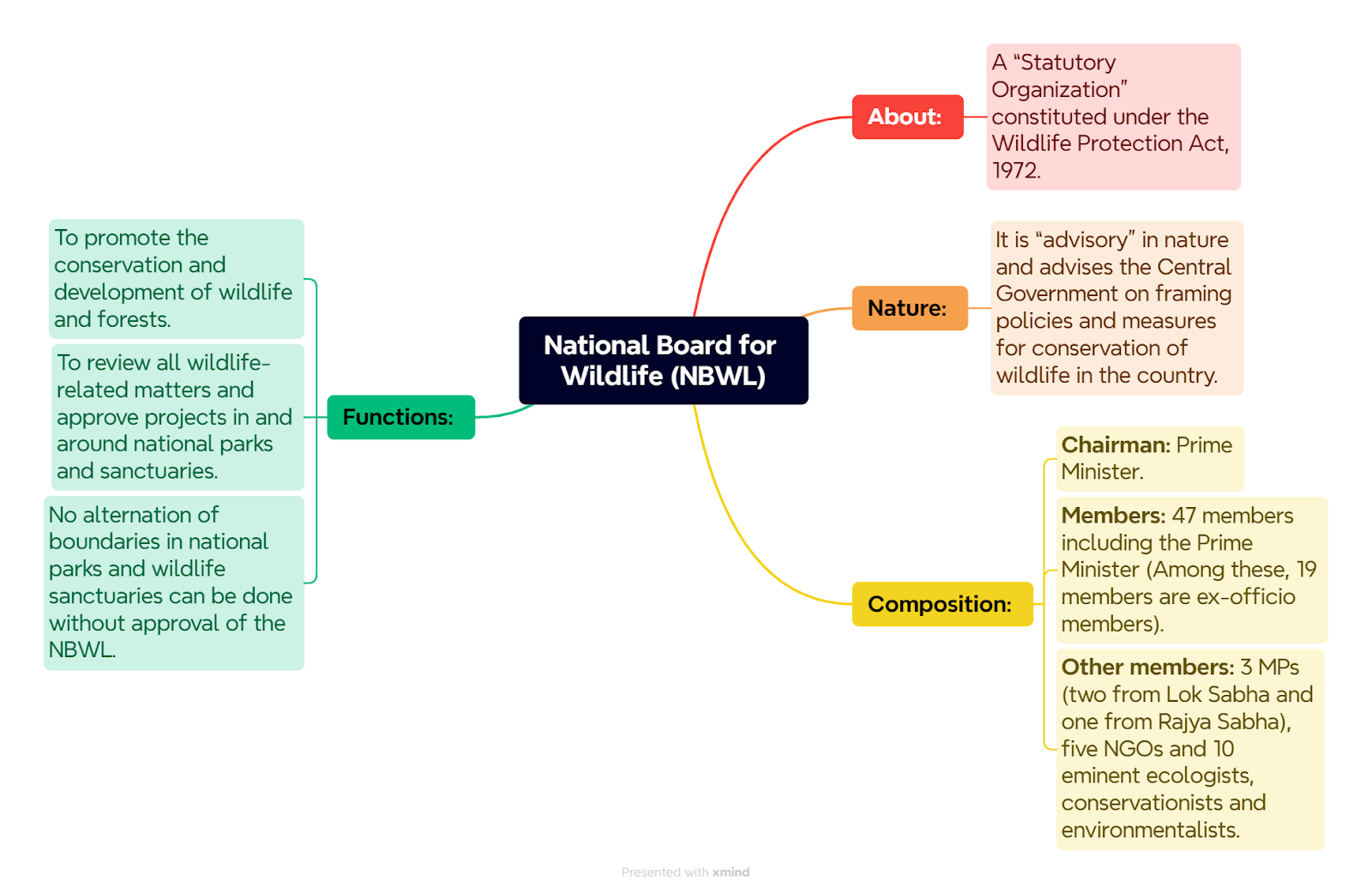
Mollem National Park - Indian Express
- About: Spread over 240 sq km in the Western Ghats, it is located in Sanguem taluk in Goa close to the border with Karnataka.
- Earlier name: Mollem game sanctuary.
- Location: Located near the town of Mollem, 60 km south east from Panaji, and the capital city of Goa.
- Religious significance: It also has several temples dating back to the Kadamba Dynasty.
- Mormugao–Londa railway line: It passes amidst thick jungles of the national park.
- Designation: It was declared a wildlife sanctuary in 1969 and renamed Bhagwan Mahaveer Sanctuary. It was named Mollem National Park in 1978.
- Core area: Over 107 sq km.
- Fauna: King Cobra, Hump-nosed pit viper, Indian rock python and Malabar pit viper.
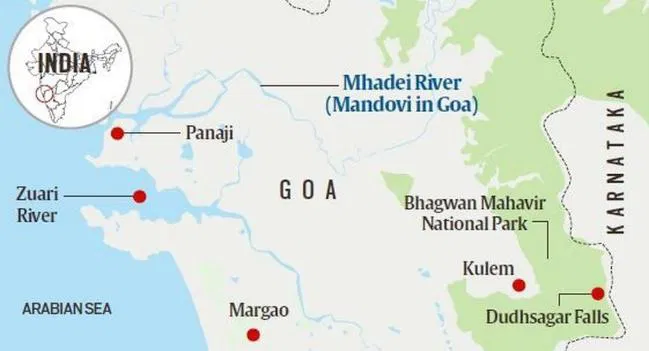
Myristica swamp, Kumbral - Indian Express
Context
A group of researchers from Dodamarg, a few kilometers away from Goa-Maharashtra border have discovered a sacred grove— a Myristica swamp forest in Kumbral, which is protected by the local community.
Myristica Swamps
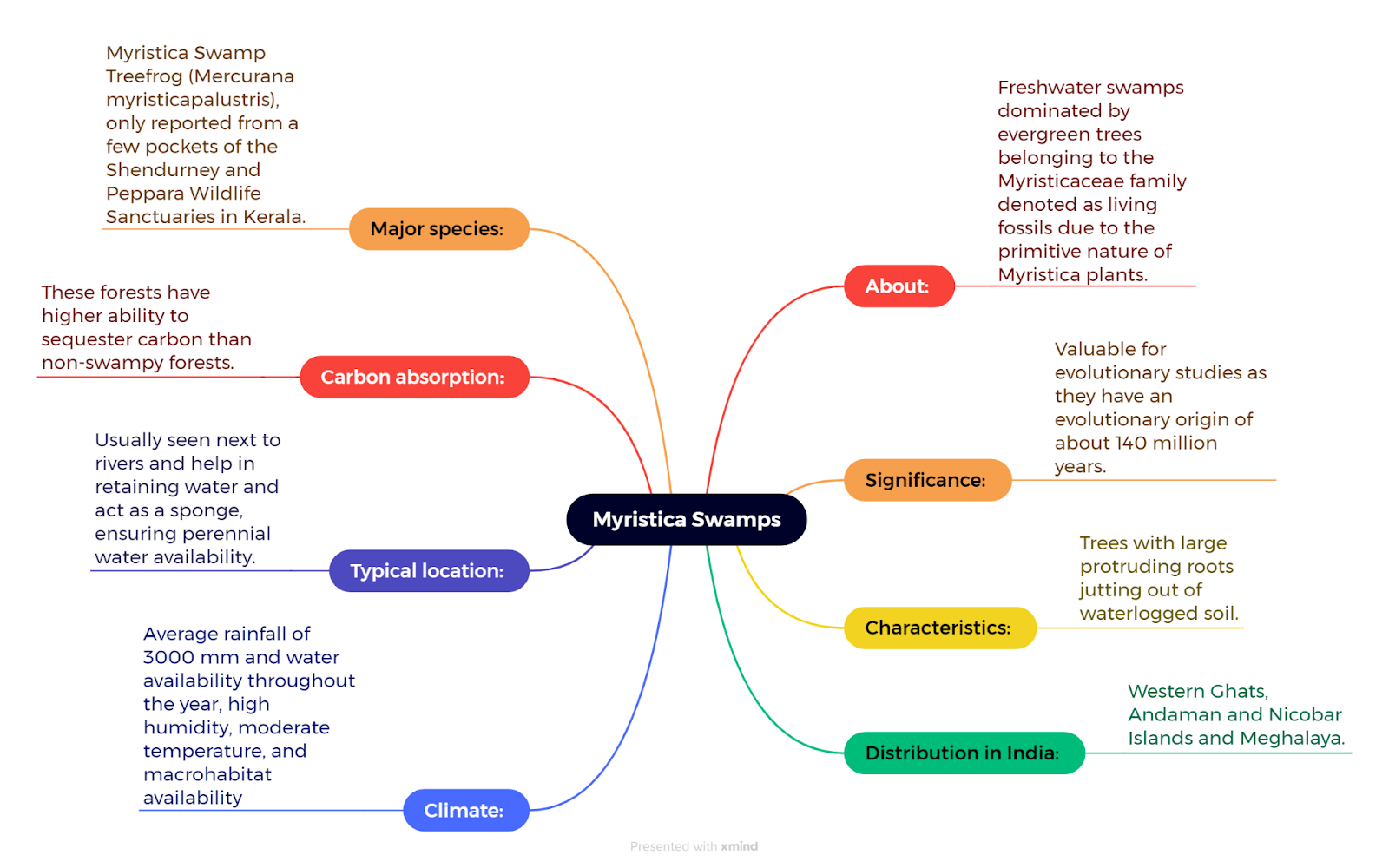
Sci and Tech
The grave threat from AMR - Indian Express
Context
Ahead of the September 26 UN General Assembly High-Level Meeting on antimicrobial resistance, the World Health Organization last week published its first-ever guidance on antibiotic pollution from manufacturing.
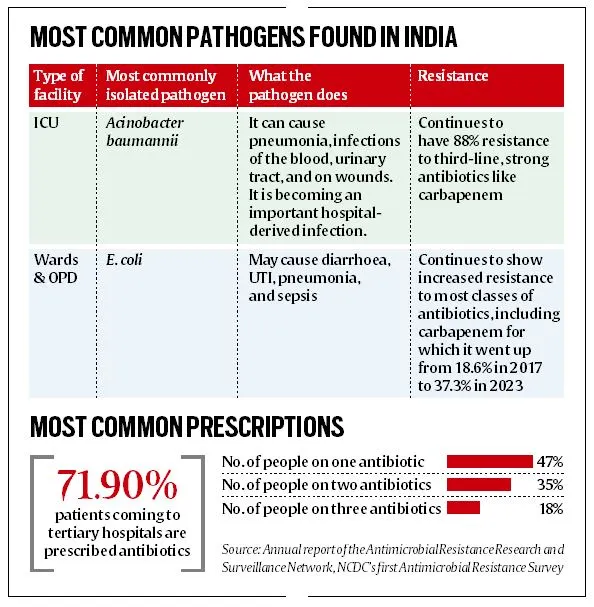
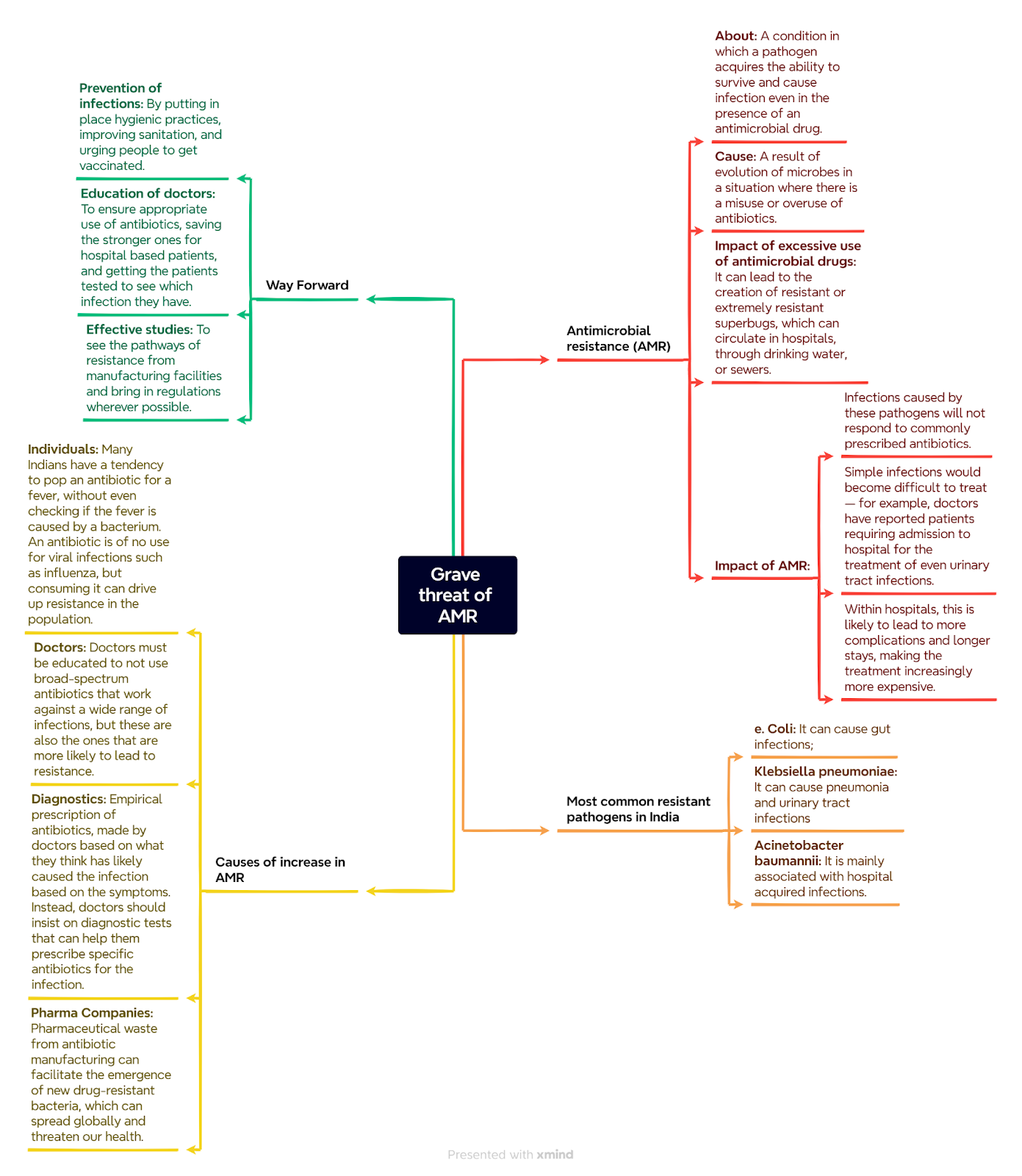
SpaceX launches all-civilian crew for first private spacewalk - The Hindu/ Everything about Polaris Dawn mission, which will attempt first private spacewalk - Indian Express
Context
A SpaceX Falcon 9 rocket lifted off from Florida recently, carrying American billionaire Jared Isaacman and three others into orbit to attempt the world’s first private spacewalk.
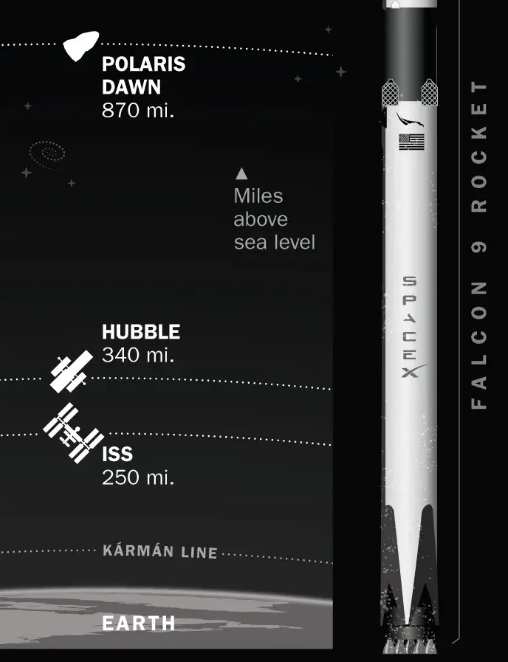
Polaris Dawn Mission
- Duration: A five-day mission
- About: The first of three testing and development missions under the Polaris Program jointly executed by Isaacman and Elon Musk’s SpaceX.
- Height: 1,400 km from Earth. It will be well into the inner band of the Van Allen radiation belts (highly radioactive regions in space that encircle the Earth) which begin at around 1,000 km altitude.
- Aim: To develop new technologies that could be used to send people to Mars some day.
- Objectives:
- To get a maximum of about 1,400 km from Earth (farther away from the 1,372 km altitude that NASA’s Gemini XI mission reached in 1966, the record for any crewed mission that was not headed to the Moon).
- The crew will use this opportunity to “conduct research with the aim of better understanding the effects of spaceflight and space radiation on human health.
- To test the spacesuits, developed by SpaceX for this mission.
- To conduct 40 scientific experiments including trying to obtain X-ray images without an X-ray machine, with the help of natural showers of radiation in space.
- To test laser-based communication provided by SpaceX’s Starlink satellite network that allows communication among satellites without relying on ground infrastructure to send signals.
Spacewalk/ Extravehicular activity (EVA)
- About: A period of activity spent outside a spacecraft by an astronaut in space.
- First-ever spacewalk: Carried out on March 18, 1965, by the Soviet cosmonaut Alexei Leonov that lasted 10 minutes.
- Current status: Today, spacewalks are usually done outside the International Space Station (ISS) and can last between five and eight hours.
- Reasons:
- To carry out science experiments.
- To test new equipment
- To repair satellites or their spacecraft during the walk
- Methods to carry out a spacewalk:
- Tethering: Astronauts wear a spacesuit and use rope-like safety tethers to attach themselves to their spacecraft.
- SAFER (Simplified Aid for EVA Rescue) methods: A SAFER is put on like a backpack, and consists of small jet thrusters to help an astronaut move around in space controlled by astronauts with a small joystick.
Miscellaneous
New portal provides technical terms in 22 Indian languages - The Hindu
Context
The Commission for Scientific and Technical Terminology (CSTT), under Education Ministry, has launched a website which provides technical terms in all 22 official Indian languages.
Shabd (‘shabd.education.gov.in’) Portal
Commission for Scientific and Technical Terminology (CSTT)
